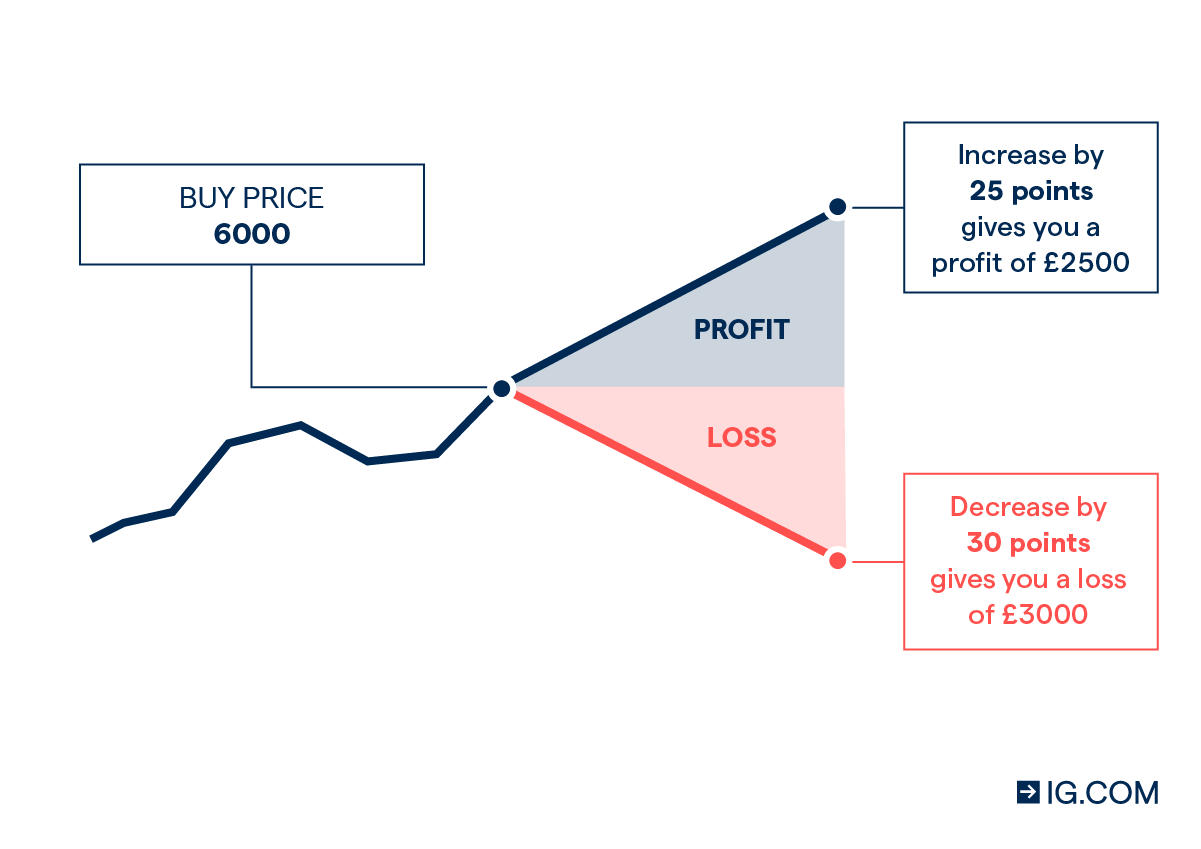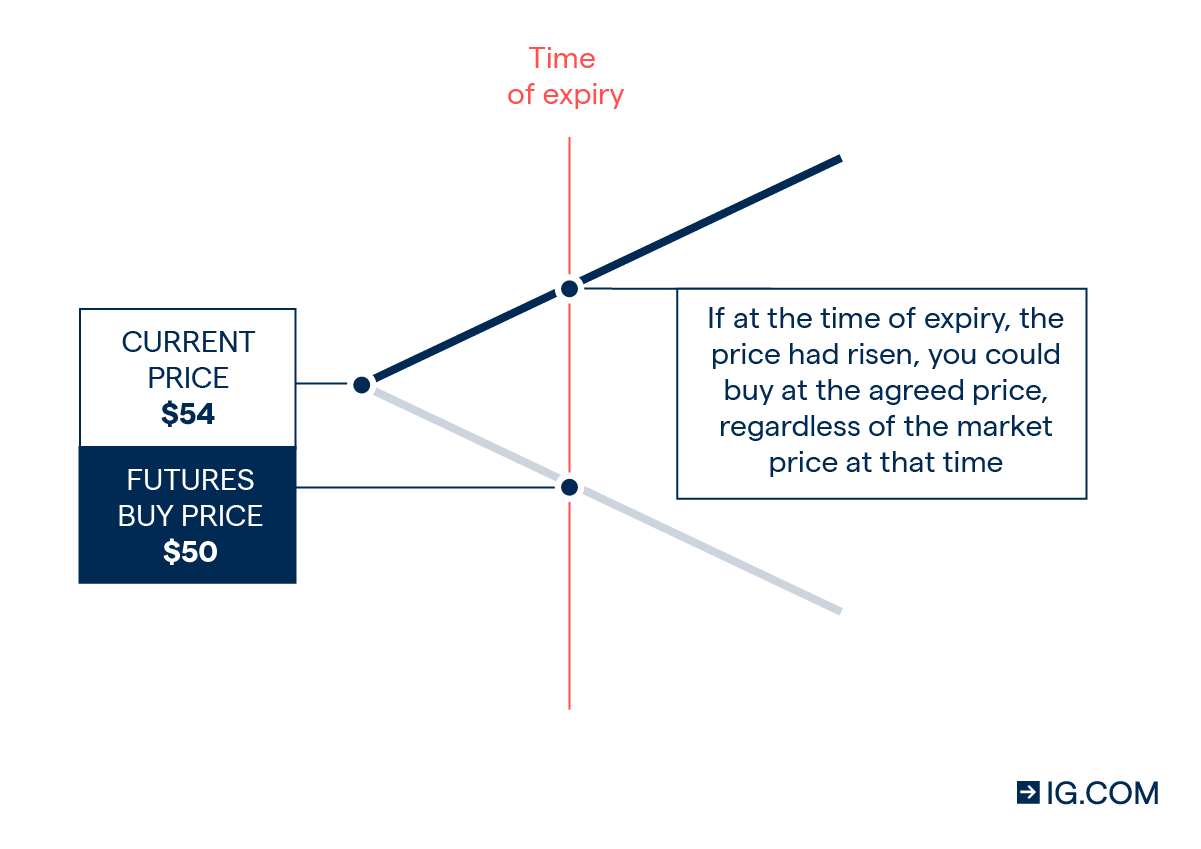CFDs vs futures: what are the differences?
Financial jargon got you down? Here are the differences between CFDs and futures, and how to take a position with us.

What's the difference between CFDs and futures?
CFDs and futures are both ways to trade a wide range of financial markets, including shares, forex, indices, commodities, bonds and more. CFDs are often regarded as more ‘flexible’ than trading futures directly.
With us, you can trade CFDs on spot prices and on future prices. Trading CFD futures acts in the same way as trading futures in the underlying market, except you’ll be able to trade on prices rising or falling without accepting any of the obligations that futures contracts entail.
To explain the differences between CFDs and futures, let’s break down each of them on their own.
What are CFDs?
CFDs are a leveraged financial derivative that let you speculate on prices rising or falling in an underlying market, without having to take direct ownership. You’d ‘buy’ the underlying market if you think the price will rise, and you’d ‘sell’ the underlying market if you think the price will fall.
Your profit or loss when trading CFDs is calculated by using your total position size multiplied by the difference between the open and close prices of your position.

What are futures?
Futures are financial contracts in which a buyer and seller agree to exchange an underlying market for a predetermined price at a future date. When two parties enter into a futures contract, the buyer is accepting the obligation to buy the underlying market, and the seller is accepting the obligation to sell it, at or before the contract’s expiry for the predetermined price.
Futures are often used to hedge against expected price rises in an underlying market. For example, airlines might buy oil futures to hedge against the possibility of rising fuel prices. That’s because buying oil futures means that airlines can lock in a price, and the price for the futures contract will stay the same – even if the price of oil rises in the underlying market.

CFDs vs futures: how to trade
With us, you can trade CFDs on futures or spot prices. Trading CFDs on futures gives you exposure to the futures market, but without requiring you to take on any obligations or worry about any of the other nuances that are associated with futures trading.
And by trading futures prices with CFDs, you’ll be able to speculate on bullish or bearish conditions in the underlying market. That’s because you can ‘buy’ to go long when you think futures prices will rise, as well as ‘sell’ to go short when you think they’ll fall.
Plus, since the futures market is often dominated by large institutions – you might find it difficult to trade futures directly.
- Spot prices let you trade on the current market price of an underlying asset like shares, ETFs, indices and forex. Spot prices have tighter spreads, but you will pay overnight funding charges – making them better-suited to intraday positions
- Futures prices let you trade CFDs on the futures price in an underlying market like indices and commodities. Futures prices have wider spreads, but you won’t pay overnight funding charges – making them better for positions that’re held for more than one day
| CFD market | Spot | Futures |
| Shares | Yes | No |
| ETFs | Yes | No |
| Indices | Yes | Yes |
| Forex | Yes | No |
| Commodities | Yes | Yes |
| Bonds and rates | No | Yes |
Please, note that some of the markets in the table above may not be available for CFD futures.
Benefits and risks of CFD trading
- Trade shares, ETFs, forex, indices and commodities
- Enjoy tighter spreads by trading at spot prices
- Go long or short
- Open a position with leverage – increasing your potential profit or loss
Benefits and risks of CFD futures trading
- Trade forex, indices, commodities and bonds
- Enjoy no overnight funding charges with futures prices
- Go long or short
- Open a position with leverage – increasing your potential profit or loss
Leverage lets you get full market exposure for an initial deposit, known as margin. This can help to bring down your initial outlay, but leverage will act to increase both your profits or your losses, so it’s important to take steps to manage your risk before opening a leveraged position.
Learn more about the impact of leverage on your trading
If you’re not ready to trade CFDs at spot or futures prices yet, we’ve also got educational resources like IG Academy with free courses on how to trade. Plus, we offer a demo account – giving you $10,000 in virtual funds to build your confidence in a risk-free environment.
This information has been prepared by IG, a trading name of IG Markets Limited. In addition to the disclaimer below, the material on this page does not contain a record of our trading prices, or an offer of, or solicitation for, a transaction in any financial instrument. IG accepts no responsibility for any use that may be made of these comments and for any consequences that result. No representation or warranty is given as to the accuracy or completeness of this information. Consequently any person acting on it does so entirely at their own risk. Any research provided does not have regard to the specific investment objectives, financial situation and needs of any specific person who may receive it. It has not been prepared in accordance with legal requirements designed to promote the independence of investment research and as such is considered to be a marketing communication. Although we are not specifically constrained from dealing ahead of our recommendations we do not seek to take advantage of them before they are provided to our clients.

Explore the markets with our free course
Discover the range of markets and learn how they work - with IG Academy's online course.